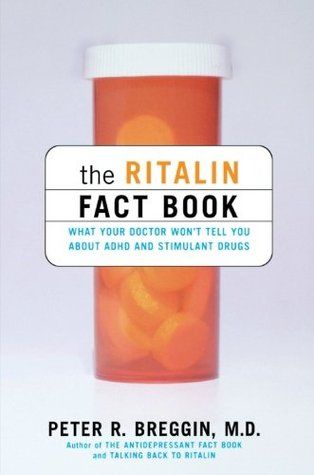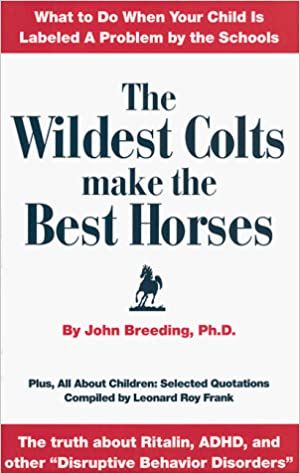What are the odds that Adam Lanza could be so racked with anxiety and, effectively, be so emotionally and behaviorally paralyzed, that he also could academically match the best in his class? Information provided by the Connecticut Office of the Child Advocate (OCA) and the newspaper, The Newtown Bee, present very conflicting data about Adam Lanza’s academic abilities.
Let’s start with that odd year when Adam Lanza should have been in the eighth grade. Recall that the OCA reports that after his seventh grade year at the Catholic School, “He did not return to school, public or private, in eighth grade.”
Additionally, the OCA explains “the psychiatrist responded with a faxed note that AL was “medically/emotionally unavailable to be tested (CMT).” “According to the psychiatrist, AL could not and was not receiving home-bound or hospital-based tutoring and he was not attending school at all.” (Pg.43)
Okay, so according to the OCA, Adam Lanza was not attending school for the entirety of the eighth grade. This is curious. If Adam Lanza did not attend school for the entire eighth grade, how did he make the Honor Roll at Newtown Middle School for three semesters of the eighth grade? According to The Newtown Bee, Adam Lanza is listed on the eighth grade Honor Roll list for 03/03/2006, 5/11/2006 and 7/20/2006. And it gets even more absurd.
Although Adam Lanza did not participate in any schooling in the eighth grade, (but still made the eighth grade Honor Roll for three semesters) Lanza is allowed to enter the ninth grade at Newtown High School. In the ninth grade, the IEP “Team” wrote “requires removal of the student from the regular education environment because AL requires more intensive service than provided for in a general education classroom.” “However, the services offered were essentially 10 hours of academic tutoring.” (Pg. 61) Despite Lanza’s inability to attend school, according to the Newstimes, published on May 5, 2007 (the Spring of Adam’s ninth grade year) Adam Lanza made the Honor Roll.
According to the OCA, Adam Lanza is so paralyzed by his emotional and behavioral disabilities by the 10th grade that “school staff and Mrs. Lanza were well engaged with each other and making many efforts to accommodate and facilitate AL’s attendance in school.” (Pg. 64) But the other side to this story paints a very different picture. According to The Newtown Bee, Adam Lanza not only made the Honor Roll three consecutive semesters of his tenth grade year, but received “High Honors.” What are the odds?
According to the recently released report on Sandy Hook by the OCA, Adam Lanza “was originally scheduled (8/27/07) to take Sociology, AP U.S. History, AP Chemistry, AP Physics, English, Math, and Latin” for the upcoming 10th grade. But according to the OCA, it was a plan “which did not last beyond a few months.” (Pg. 65)
The OCA also reported that “by February of that school year AL had dropped most of his mainstream classes, including Sociology, History, Chemistry, and Physics and had arranged to complete English as an “independent study.” And, the OCA further said, “It became clear that the recommendations for full time participation in regular classes was a goal that could not be met at that time.” (Pg. 67)
The OCA also reports that “in March, Mrs. Lanza was again contemplating home-schooling AL, but worried that he would later be unable to show (a college?) all of his work with the Technology Club or work study. Summer of 2008 records indicate that AL was to receive Extended School Year Services (ESY), in the form of one-on-one tutoring from school staff.” (Pg.67)
The OCA did not elaborate – did not provide any information – on whether AL actually completed any school work through the ESY program, but does report that for the 11th grade “AL did not reenter mainstream classes in the High School again.” (Pg.68)
Now, let’s consider the names of those Newtown High School students, as reported and printed by The Newtown Bee, who made the “First Quarter Honor Roll,” which is dated 12/21/2007. Listed under “High Honors – Tenth Grade” is… Adam Lanza. What are the odds?
According to The Newtown Bee, “To be included students must be enrolled in five or more courses with a minimum of four courses in areas of study other than independent study and released work experience and have no incomplete grades.”
If the public is to believe the OCA report, Adam Lanza was so racked with anxiety in 10th grade that his educational plan “did not last beyond a few months.” Still, though, this emotionally tormented boy was able to pull off an “overall average of 90 or higher for the marking period and receive a grade of 85 or higher in each course used in determining the overall average.” Seems a stretch, but okay. What about the next semester?
According to The Newtown Bee, Adam Lanza also made the Honor Roll in the Second Quarter and, remarkably, also was listed in the Third Quarter as receiving the “Latin Award – Summa Cum Laude.” Again, all of this was accomplished by a kid whose educational plan for the year “did not last beyond a few months.”
It is beyond incredulous, given his reported emotional and behavioral problems at the time, that Adam Lanza was capable of carrying off such an academic feat, but it is even more astounding that the OCA, after two years of painstakingly combing through his school records, could so blatantly fail to even mention that Adam Lanza had earned such high academic accolades.
And, while the OCA appears to paint the Yale Child Study Center as the smartest guys in the room, based on Adam’s stupendous academic record for the 10th grade, it appears Yale’s diagnosis missed the mark. According to the OCA report, “Yale Child Study Center clinicians did not conclude that AL was “high functioning” or that he definitively had Asperger’s Syndrome. Rather, they found him as profoundly impaired and debilitated by anxiety, with extensive special-education/therapeutic needs.” (pg. 62)
Both scenarios don’t add up. Either Adam Lanza was “profoundly impaired and debilitated by anxiety,” or he was “high functioning” and brilliant. Adam Lanza did not make the Honor Roll for three consecutive quarters of the eighth grade at Newtown Middle School and, at the same time, not attend eighth grade. Either Adam Lanza completed all of the required courses at Newtown High School in order to be listed as being on the Honor Roll and receive “High Honors,” or his educational plan “did not last beyond a few months… and by February of that school year AL had dropped most of his mainstream classes, including Sociology, History, Chemistry, and Physics and had arranged to complete English as an “independent study.”
Is it possible that educators at Newtown Middle and High School made a mistake placing Adam Lanza on the Honor Roll and bestowing “High Honors” on him? If they did, perhaps lawmakers may find it appropriate to revisit the legitimacy of all of those students who were bestowed honors. After all, if a child does not attend school “at all” for an entire year and then is placed on the Honor Roll for three consecutive semesters of that year, there appears to be a major problem with student accountability, to say nothing of the accuracy of the rating system.
One might also argue, given the faculty’s reported knowledge of Adam Lanza’s emotional and behavioral challenges, that it is a stretch to believe someone at Newtown Middle and High School didn’t question Adam Lanza’s placement on the Honor Roll at least once, let alone let it slip for three consecutive quarters.
On a number of levels the OCA’s carefully crafted “story” does not make sense, beginning with the fact that Adam Lanza skipped the entirety of the 8th grade and was allowed by the Newtown School District to move into the 9th grade. The problems surrounding Adam Lanza’s apparent academic accolades only adds to the ever-growing list of oddities in the OCA report.
The only way to truly know the facts is for Adam Lanza’s school records to be made public. Until then, the report is simply a “story” made up by the OCA…and not a very good one at that. Certainly the OCA report should not be used to decide the future mental health programs for Connecticut’s school children.
8th Grade
News
News
News
9th Grade
http://www.newstimes.com/default/article/Newtown-High-School-honor-roll-54220.php
10th grade
News
News
News









